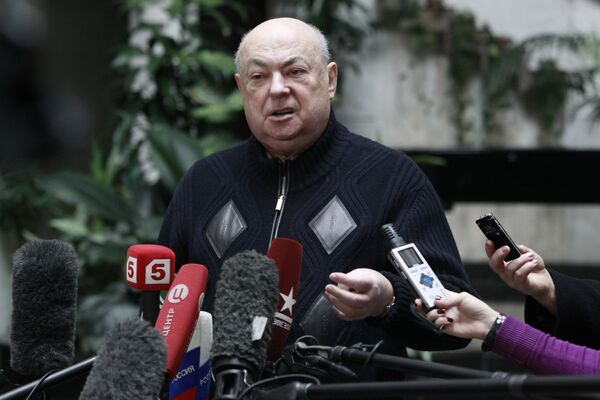Acting Moscow Mayor Vladimir Resin said the decision to propose Deputy Prime Minister Sergei Sobyanin as Moscow's new mayor was right.
Russian President Dmitry Medvedev on Friday proposed Sobyanin as the Russian capital's new mayor.
Medvedev sacked long-serving mayor Yury Luzhkov on September 28, citing a "loss of trust." State media had previously accused him and his businesswoman wife of massive corruption.
"He knows what we know," said Resin explaining that Sobyanin was a working man and a governor. "Besides, he has a colossal experience of state job, which no one of us has," Resin continued.
"I ... think that this is good that such a man-mountain [Luzhkov] will be replaced by such a personality," Resin said. "I am confident in his success."
Earlier Russian press was speculated that Resin might stay in office for the next two years. Speculation that the acting mayor may remain in charge of the Russian capital increased after Resin, 74, joined the pro-Kremlin United Russia party.
Resin denied that adding that "a person at least 20-25 years younger" than him should be mayor.
The City Duma will now vote on his candidacy, but analysts say there is little doubt that 52-year-old Sobyanin, Prime Minister Vladimir Putin's chief of staff, will be approved.
Direct elections for Moscow mayor and governors across Russia were scrapped in 2004.
Sobyanin was head of the presidential administration under first Putin and then Medvedev from 2005-2008. He also ran Medvedev's presidential election campaign in 2008.
The nomination for Moscow mayor has been watched closely ahead of the 2012 presidential elections, and it seems likely that the appointment of Sobyanin will strengthen Putin's position should he make a bid to return to the Kremlin.
Sobyanin, who was born in and is a former governor of the Siberian oil-rich Tyumen Region, said after his nomination that he would focus on issues including transport and corruption if he becomes mayor.
Medvedev told him at a meeting on Friday that the future mayor of Moscow and his team should be "completely integrated with the federal authorities." This he said would ensure "trust."
MOSCOW, October 16 (RIA Novosti)


